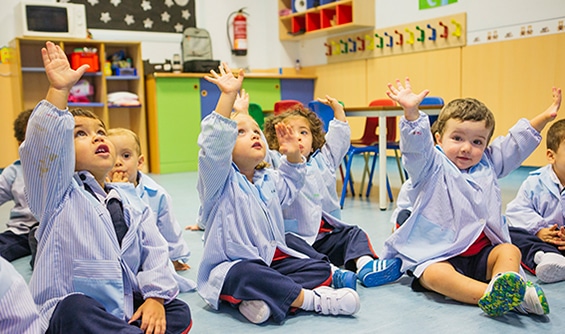Externalizing emotions is positive, especially when they are very intense. This activity is even more important when it comes to children. That's why we think these tips for helping children to express their feelings can be especially interesting.
Let us remember that children, as they develop, learn to control and understand the intensity of their emotions. But during their first years of life, this control is very limited. In fact, it is not uncommon to see them go from crying to laughing in a matter of seconds.
That is why it is so important that, even when they are very young, they gradually learn to recognize their feelings and emotions. This way they will learn to handle them better when they are older. In this way we raise children who are more self-sufficient, self-confident, more tolerant of frustration and have much clearer ideas when it comes to solving problems and dealing with obstacles.
How can we help children express their feelings?
That said, how do we help the little ones at home to express their feelings sincerely? Let's look at some tips.
Identification
Asking the child to repress an emotion or, what is worse, disqualifying it on the part of the adult, can be very negative for the child's optimal development. Even if the child cries inconsolably, we should help him to identify how he feels instead of trying to stop the crying at all costs or ignore the situation as if it were not important.
If the child identifies the emotion, he/she will be able to verbalize it, which makes it easier for us to help him/her so that, in the future, he/she will know how to manage these feelings.
Using games
There are interesting games and exercises for children to learn to identify emotions. For example, they can compare them with different objects by playing the classic 'If it were'. That is, if what you feel were a fruit, what would it be? Once the child answers, we can analyze why he/she chose that element and what are the reasons for that selection. In this way we can help them to understand and internalize.
Use of external resources
Nowadays we have at our disposal numerous resources to make children understand their feelings, externalize them and understand them. For instance, we can use stories, movies, books, songs, etc.
After consuming the content, it is a good idea to talk to the children to make sure they have understood everything. This way we will know what they feel, how they feel, how they verbalize it, etc.
Giving children ideas
As adults, we can give ideas to the little ones so that they can externalize their emotions. Let's remember that we are guides for them. Therefore, they will trust their teachers and, above all, their parents and caregivers.
So, when they tell us that they have some kind of internal emotional conflict, we can generate ideas that can help them in the resolution. Again, our job, we repeat, is to act as guides. We cannot fix the problem for them, but we can give them the right clues so that they can find the best solution for themselves.
Tools to understand and assimilate emotions
We can help children feel better by understanding and identifying emotions. So, when they are sad or angry, or when they feel afraid, they themselves will have tools to improve their mood.
As we say, we should teach them not to repress their feelings, but to identify them. Thus, when they feel bad, they can put into practice formulas to improve. For example, if they cry, they could learn to search their memory for a memory that they find sympathetic. In this way they understand what is happening to them, they assimilate it, they understand that it is not intrinsically negative and they find ways to improve little by little using their own tools.
These 5 tips to help children express their feelings, and many others that can provide you with the experts of our team of pedagogy and child psychology of Logos Nursery School, nursery school in Las Rozas, will be very useful for children to develop in fullness environments. will be very useful for children to develop in fullness environments with good self-concept and wide autonomy and security.

